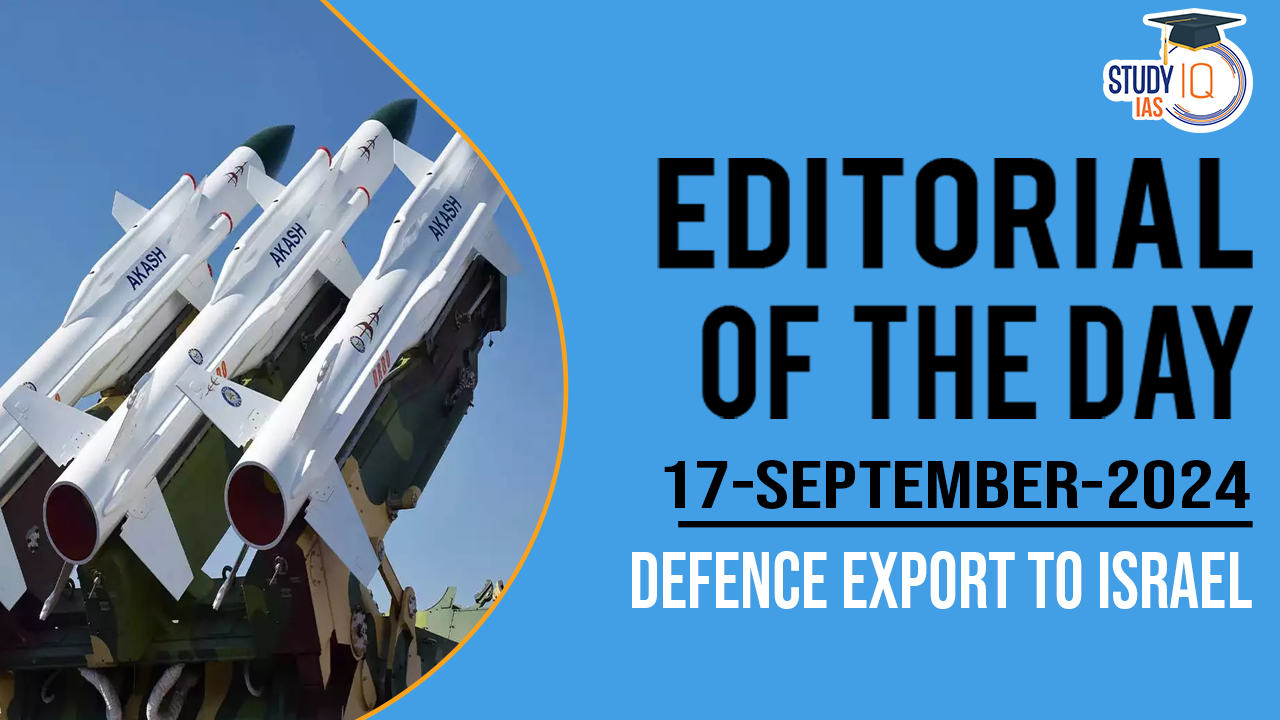Table of Contents
Context
The Supreme Court of India recently dismissed a petition filed by former civil servants, academics, and activists in the case Ashok Kumar Sharma and Others vs Union of India, which sought to suspend licences for exporting military equipment to Israel during the ongoing war.
More in News
The petition referenced international humanitarian law violations by Israel and cited the International Court of Justice (ICJ) rulings, which ordered provisional measures against Israel for genocide in Gaza. Despite not ruling on the merits of the case, the Court issued a detailed judgment.
ICJ Opinion and Global Context
- The ICJ, in January 2024, ordered Israel to halt killings and destruction in Gaza, citing violations of the Genocide Convention.
- UN experts warned against arms transfers to Israel, stating they could constitute complicity in international crimes.
- In July 2024, the ICJ declared Israel’s presence in the Occupied Palestinian Territory unlawful and reminded all states not to aid in maintaining this illegal situation.
- Many countries, including Canada, Spain, and the UK, have suspended arms exports to Israel under their obligations to international law.
India’s Stance
- As a signatory to the Geneva Convention and the Genocide Convention, India is bound by obligations to prevent genocide and to halt arms exports that could aid war crimes.
- Article III of the Genocide Convention holds states responsible for complicity in genocide, and Common Article 1 of the Geneva Conventions prohibits supplying weapons to states involved in war crimes.
- Despite these obligations, the Indian government has continued to license arms exports to Israel.
The Supreme Court’s Response
- Failure to Consider International Obligations: The Supreme Court dismissed the case, reasoning that Israel was not a party to the case.
- The Court argued that ruling on Israel’s actions would infringe on the sovereignty of a foreign nation.
- However, the petitioners were challenging India’s actions in exporting arms, not Israel’s conduct.
- Breach of Contracts Concern: The Court cited potential breach of contract as a reason for not suspending military export licences, fearing fallout from halting ongoing contracts with Israel.
- Judicial Restraint in Foreign Policy: The Court invoked the idea of judicial restraint in matters of foreign policy, refusing to intervene in decisions concerning international relations.
Impact and Repercussions
- The Supreme Court’s refusal to suspend military aid to Israel has serious implications.
- Amid the ongoing humanitarian crisis in Palestine, India’s failure to adhere to its international commitments may be seen as enabling Israel’s continued military actions.
- The ruling weakens India’s position in upholding international humanitarian law and may contribute to further devastation in the region.


 Daily Quiz 18 April 2025
Daily Quiz 18 April 2025
 OSSC CGL Syllabus 2025 and Exam Pattern ...
OSSC CGL Syllabus 2025 and Exam Pattern ...
 AI and its Regulation in India, Limitati...
AI and its Regulation in India, Limitati...





















